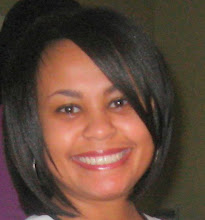Click on Democracy
The Internet’s Power to Change Political Apathy into Civic Action
By: Steve Davis, Larry Elin and Grant Reeher
Recognizing that the Internet would influence the upcoming 2000 presidential elections, a dean at Syracuse University’s S.I. Newhouse School of Public Communications invited faculty and staff members to come together and research the Internet’s role in the upcoming election for the possibility of writing a book.
The group anticipated that the Internet would primarily be used to disseminate news and information, which would lead to a better-informed electorate and higher voter turnout at the polls. The group began their research by canvassing traditional media Websites and political candidates’ sites. This approach did not prove promising as big media companies scaled back their online initiatives and small media outlets began to fold. The researchers also found that political party and candidate Websites were often not up-to-date with information. Just when the group began to think that there was no real story, they had an eureka moment and focused their efforts on exploring online political communities.
“Click on Democracy” is a 262-page book that discusses how the Internet helped to reconnect people and provide a platform for communication, even without the guidance and help of the media and political organizations. The book cites Robert Putman’s “Bowling Alone” to illustrate the fact that over the past 40 years Americans have become less and less engaged in community and political activities.
The book delves into how both politicians and John Q. Public successfully and unsuccessfully engaged voters online in the name of democracy. “Click on Democracy” introduces readers to dozens of people who participated in online political activities during the 2000 election campaign. Examples include S.B. Woo who co-founded the 80 – 20 Initiative, a nonpartisan Asian-American political action committee; Charles Ellison who developed politicallyblack.com for educated middle class African Americans who were savvy about politics and policy, and Ed Rudd, a Gore volunteer who stayed abreast of campaign information and drafted e-mails for forwarding to other Democrats. And the list goes on and on and on of such scenarios, and even includes insignificant biographical information of these cyber crusaders.
The portion of the book that I found most interesting was the online initiative to coordinate vote trading between Ralph Nader and Al Gore supporters. The concept was for Democrats across state lines to trade votes in swing state elections to help the candidate with the better chance of beating Bush win that state. Perfect strangers developed a trust that was founded on their belief that Bush should not be reelected, and were actually willing to trust each other enough to swap their votes. One vote trading Website, voteswap2000, received an e-mail from California’s Secretary of State indicating that brokering votes was illegal in California, and carried a maximum penalty of three years in prison for each violation. The book points out how our founding fathers could not have foreseen citizens’ ability to overcome geographic barriers and organize and unite in support of shared political goals. The Internet provides a way for voters to somewhat bypass the electoral system. Vote swapping between Nader and Gore supporters allowed Nader to better compete nationally for liberals’ votes. “Click on Democracy” quotes one “Nader trader” as saying, “we are smarter than the system we’ve been given.”
The authors of “Click on Democracy” think that the catalyst that will define how the Internet will foster democracy in our country is how grassroots organizations and large institutions intersect. The book was published in 2002 and offered these recommendations to develop the Internet’s potential as a political tool:
• Large institutions should invest more money into their online initiatives
• Build more online communities that allow for two-way communication, which will spark active participation. In 2000, the typical model was that organizations were communicating with their audience, but did not provide an infrastructure for their constituents to communicate with each other
• The government must alleviate the digital divide by putting computers in each home. The authors state that in the past, the federal government has stepped up to address the needs perceived to be crucial to democracy and the actual living of one’s life. Examples include government initiatives that make obtaining a college education more attainable and old-age pensions and healthcare.
• Engage the country’s youth
Over the past eight years, we’ve seen all of these occur except the government ensuring that there are computers in every home.
“Click on Democracy” is a useful read for those who have a strong interest in online communities and/or politics, as well as a great deal of patience to read through what I feel was insignificant data about people who played some roll, albeit small, in online interactions during the elections process.
Subscribe to:
Post Comments (Atom)

No comments:
Post a Comment